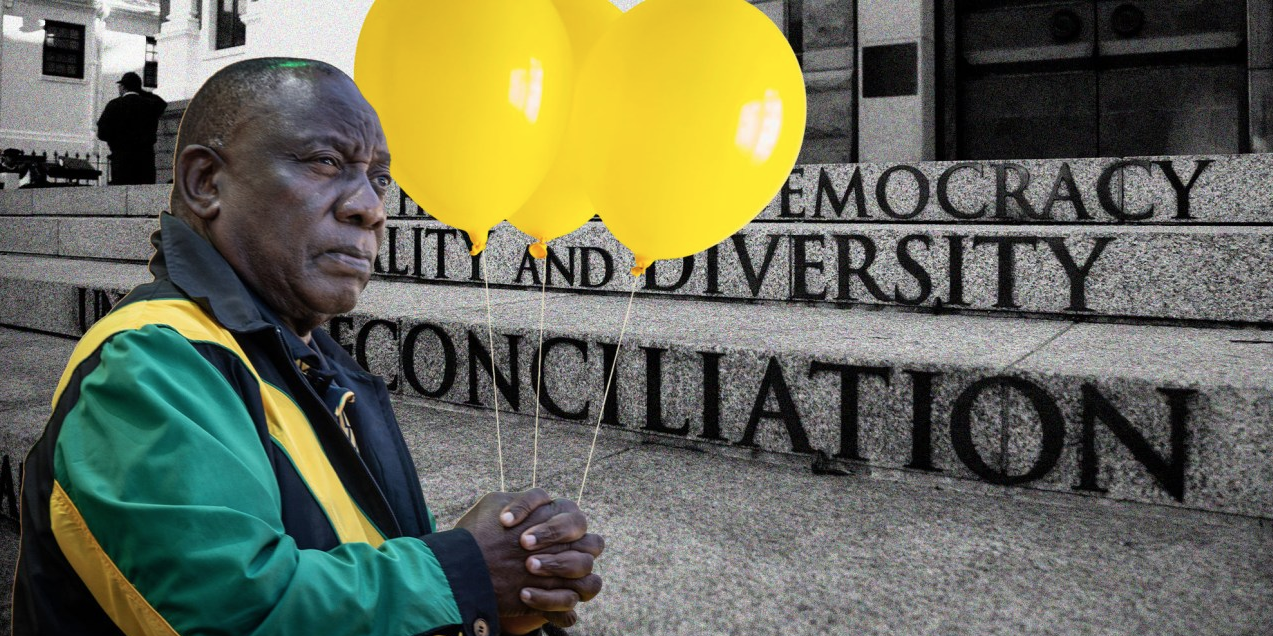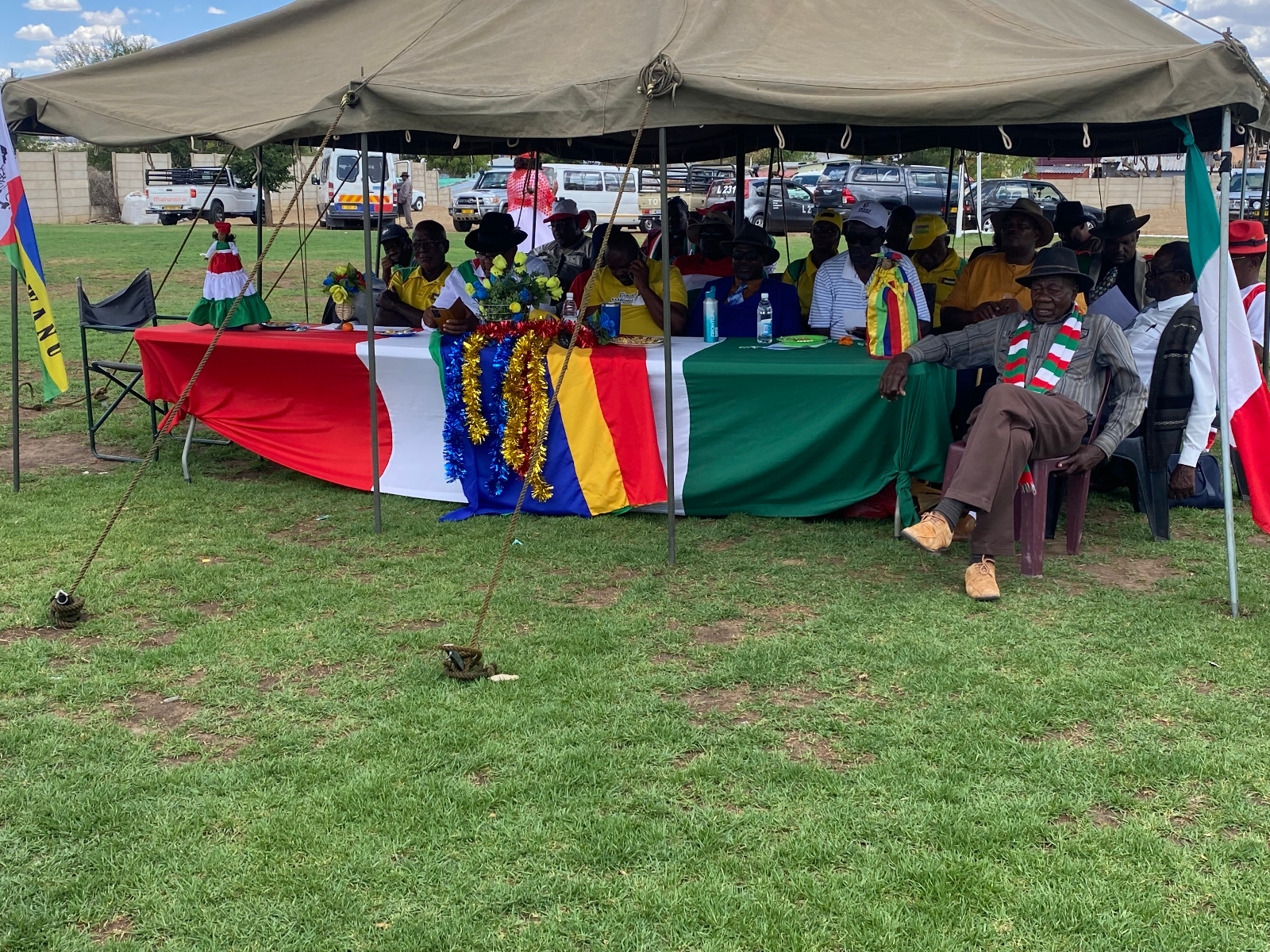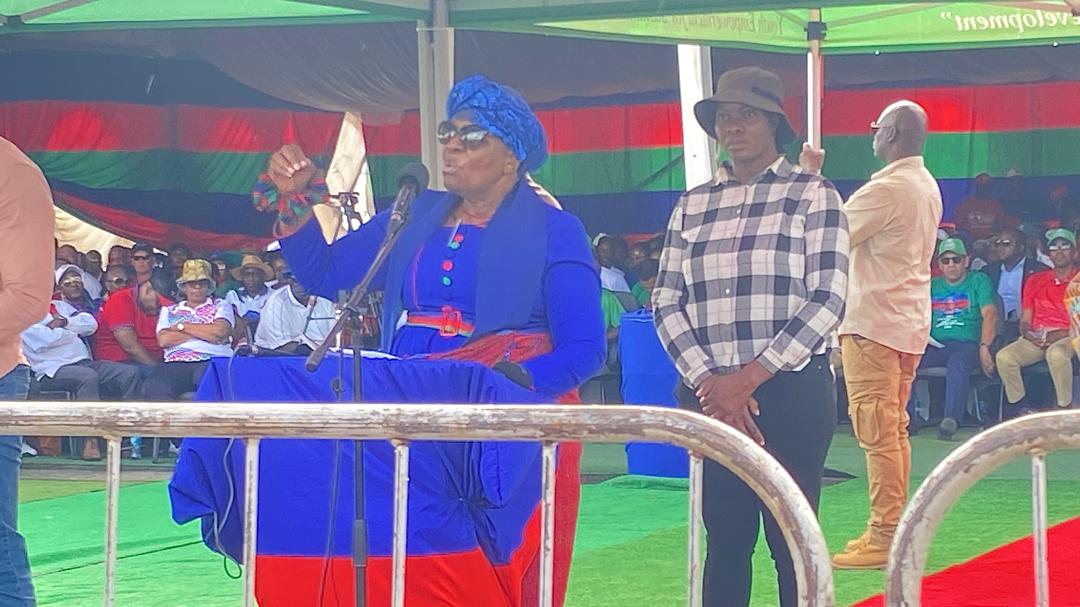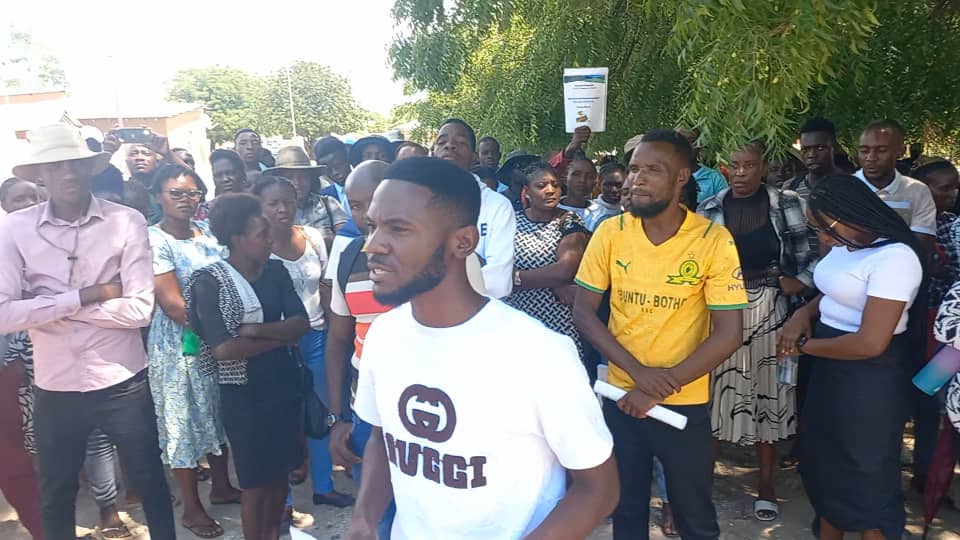One day you wake up and you’re living in Eritrea. I don’t mean actual Eritrea, the secretive North Korea of Africa, with its excellent coffee, wonderful biscotti, art deco buildings and a vicious slave labour system. I mean spiritual Eritrea – a one-party state led by an enigmatic leader who lives on a hill, gazes down upon his subjects and thinks: This is awesome!
When will South Africans realise that since the “Government of National Unity”, crafted in the wake of the May 2024 national elections, opposition politics are kaput? Many insist that, No actually, it’s been the ANC Show up until now, and finally we have a more pluralistic system, where Stuff Will Get Done.
But is this true? Or has something more sinister occurred?
Has Cyril Ramaphosa co-opted his traditional enemies, handing them ministries and committees and blue light brigades and the trappings of power, in exchange for, well… what exactly?
Blue Light Babalas
Let’s think back to the dark origins of our democracy. Forged in blood and violence – if not the quantum of blood and violence most people anticipated – the ANC emerged from the wreckage as a roving colossus. Prompted by a sleight of historical revisionism, they claimed the mantle of the liberation movement, when in fact they were a liberation movement among many.
The result of this was an alliance that sucked the South African Community Party (SACP) and the Congress of South African Trade Unions (Cosatu), among others, into the ANC gyre. Which meant the end of South African communism and the death of organised labour, as both organisations now slurped from the crystal champagne trough installed in Luthuli House.
The unionists subjected to this co-opting may have themselves grown rich and powerful. But many of them regret their decisions to this day.
After all, blue lights fade while shame burns forever.
The current political scenario is not an alliance. Nor is it a government of national unity – which is nothing more than a marketing tag akin to calling Wimpy a health and wellness centre. It is a coalition, allegedly bound by a shared commitment to fix what the ANC has broken over the past thirty years. Like any coalition, what binds the members are not their differences, but their similarities. Because South Africa is where political imagination comes to die, the only meaningful difference between the two largest parties, the ANC and the DA, is the brand of identity politics they practise. The ANC are African Nationalists – it’s right there on the package. The DA are a minority rights party – it’s right there in the pigment of their leadership. To various degrees, this echoes throughout the smaller rats and mice parties skittering around the coalition.
What connects the parties, however, is a shared belief, however poorly articulated, that social democracy is South Africa’s default position. But what is social democracy? The great Canadian politician Ed Broadbent, who was deeply influenced by the political philosopher John Stuart Mill, saw society as a series of social relations. While rejecting anything resembling Stalinist state socialism, Broadbent pitched something closer to “cooperative individualism”. Indeed, the key to social democracy, or democratic socialism – Broadbent used the terms interchangeably – was democracy. Individual agency and choice did not undermine a social system in which equality and care were not just nice-to-haves, but the entire point.
In fact, the opposite was true.
Is this South African social democracy? No one really knows. The DA’s federal chair and de facto leader, Helen Zille, considers herself a “classical liberal” and a proponent of the “free market system” – but if anyone takes her pronouncements on economic matters seriously, I haven’t met them. As for the ANC, as has already been mentioned, it’s too diverse to call it any one thing, but it always seems to gravitate to the centre. (There is a vocal minority of morons who interpret this as “communism”, but the less said about them, the better.) The technocratic aspirants in both parties are addicted to the notion of growth coming from the formal economic sector, underwritten by effective state-owned entities that provide electricity and other sundries, while corruption is rendered invisible and frictionless, and the poor are paid off with social grants.
Slap it, cut the umbilical cord, put a diaper on it, and christen it Social Democracy.
Very roughly, this seems to be what Cyril Ramaphosa’s sitcom cast of coalition partners have agreed upon. There are, however, many dangers along the way. And none are more dangerous than the distractions inherent in political power.
You’re a Minister, and you’re a Minister, and you’re a…
Indeed, we’re barely 100 days in, and the coalition is starting to look less like a coalition than a big mess hall, where everyone is ditching the salad bar for the dessert cart. Exhibit A: After he was made Minister of Agriculture, DA president John Steenhuisen looked in the mirror, made a gun shape out of his thumbs and fingers and said, Pew pew, that’s Minister Steenhuisen to you, chommie.
Because South Africa is in fact an endless hall of mirrors, Minister Steenhuisen is not all that different from the many ministers he’s criticised in the past. He’s appointed under-qualified cronies as staff members, including the right-wing social media gadfly as his head of staff. (The latter has refused to resign.) None of them has apparently been paid in three months. At this point, Steenhuisen hardly looks like presidential material, and has been far too busy acting like an old-school ANC minister to offer a critique of the government he now serves so incompetently.
Which brings us, in a roundabout way, to the recent Miss South Africa pageant, and the scandal that reduced an already absurd competition into a nativist farce. It so happened that a young woman named Chidimma Vanessa Onwe Adetshina appeared on the list of those competing for the title of the country’s most beautiful young female. To sharp-eyed X users, her name had a foreign ring to it – specifically, a Nigerian ring. In South Africa, “Nigerian” is a synonym for drug dealer or pimp, without whom South Africans would eschew all narcotics and prostitution in service of healthy, productive lifestyles.
Adetshina’s rise had to be stopped at all costs.
Not so long ago, we were told that diversity was our strength. Now it turns out that Nigerian hotties are, in fact, our weakness. The newly minted sport and culture minister, Gayton Mackenzie, as unfit – literally and figuratively – for the job as anyone before him, carved out his political base on the back of xenophobic declarations. As a sort of coloured ethno-nationalist with an affinity for his white rights counterparts, Gayton found his political materiel in the vastly poor and violent exurbs of Eldorado Park in Johannesburg, and its equivalents elsewhere in the country.
In forging his Patriotic Alliance party with neo-elite celebretoid Kenny Kunene, Gayton used his superhero origin story to sell a well-used bag of goods. Gayton, you see, once belonged to a dreaded gang, and then got busted robbing banks. Upon his release from prison, he entered the legitimate economy, so far as South Africa has one, and began monetising his former exploits. He claims that his autobiography, Hustler’s Bible, has moved over 200,000 copies, which would make it the best-selling South African book of all time, minus perhaps Jock of the Bushveld and the Afrikaans translation of Fifty Shades of Grey. And so, a young black woman born in this country was chased out of the Miss South Africa competition with pitchforks and flames. The online pogrom was driven by the sport and culture minister, who is never more articulate than he is on the issue of black Africans from elsewhere. Gayton’s political metier is hate, hidden under a fat scoop of populism.
These are but two examples, and the distractions assist one man in the main: Cyril Ramaphosa.
CEOs are from Pluto, voters are from Mars
And as we’ve already determined in these pages, Cyril is happy, largely because of how easy it’s been to tame his former enemies. We have, in fact, never had a happier president. It’s a nice thing! His opponents now join him inside the ANC’s capacious circus tent. Those who haven’t – the Economic Freedom Fighters and Zuma’s MK Party – are not just in disarray, they’re machines that actively generate chaos.
An example: Commander in Chief of the EFF, Julius Malema, was cuckolded by his BFF, Floyd Shivambu, who ditched the Big Boss for the Bigger Boss in the MK Party. And wait for it: the MK Party accepted Floyd Shivambu, who drags with him so much baggage associated with the VBS bank robbery that it underscores the fact that an actual mafia organisation forms the official opposition in South Africa. It either helps or doesn’t help that Parliament is a collection of some of the worst people in South Africa. At last count, about a third should be sitting in prison, another third should be awaiting trial, and the rest are merely bench-warming for future criminals.
All of this allows Ramaphosa and his allies in the ANC to forge their own version of social democracy. What this Ramatopia would look like?
First, the Phala Phala cash-in-couch scandal has just – poof! – disappeared, dropped by the National Prosecuting Authority for reasons known only to them. Everyone in the coalition understands that in order for this government to function, Phala Phala needs to be erased from the record. They have mewled and bitched ever so slightly – but no one is confused: What constitutes “corruption” is now defined by Cyril Ramaphosa.
Second, Cyril’s pet project, an alliance with the formal business community, has effectively crafted a kitchen cabinet that works in parallel with the technocrats leading the ministries of Trade, Industry and Competition, Finance, Electricity and Energy, and Communications and Digital Technology.
Officially called “Phase 2 of the Government Business Partnership”, what this does is pull the heads of major companies into the coalition fold. In light of this, we must ask, What is a CEO? This is less a question for an economist or a finance bro than it is for a mythologist. A CEO is a Magical Being who rose to his (and very occasionally, her) role on the wings of a Fiery Dragon. On this Long Quest, full of Peril, they Acquire Knowledge that can be applied to Absolutely Everything. Until their inevitable downfall following sexual harassment charges (because Wokeness), there is nothing they can’t fix, very much including a Country. Which, after all, is basically just a large business.
Once, they slept in the street and pretended to be homeless. Now, they help Cyril run the country. There is a word for this: Plutocracy. But in keeping with the sunny zeitgeist, it’s a jolly plutocracy, jam-packed with Hope.
The ancient ANC enmity with the formal business community has always been a bit of a scam. It comes down to a resource battle for the control of economic power – a hangover of the National Party’s (failed) attempt to wrestle the economy out of the hands of the Anglo mining elite. Cyril has long seemed to believe that if you can’t beat ’em, join ’em.
Or better yet, have them join you.
Ask an Italian
Can a social democracy be crafted in the shadow of this mess? Funnily enough, the Canadian politician Ed Broadbent was faced with a similar question. Canada is nothing if not addicted to vast corporations that determine the course of the economy, and Broadbent understood why this was a bad thing. As he once put it, “The resource-dependent structure of the Canadian economy was inhibiting the building of a dynamic and modern industrial economy that we could direct toward modern ends: a “staples trap” that made it difficult for Canada to shift away from natural resource dependence and made the Canadian state susceptible to political capture by resource capital.”
Sound familiar?
We’ve long been told that Cyril Ramaphosa is an “enigma” – a series of weird contradictions moulded into a facsimile of a human being. But Ramaphosa has been telling us exactly who he is for forty long years. He’s a pragmatist, a do-what-needs-to-be-done powerbroker who sees democratic engagement less as a series of meaningful inputs from the polity, and more as a means to forge consensus around a narrow set of variables. What Ramaphosa clearly wants is a version of a social democracy that prioritises growth as a cure-all panacea.
And there is no one left to argue with him.
Yeah sure, there are still fistfights in Tshwane and other metros over who gets to govern and who gets the spoils. But the main battle – over who gets to run South Africa – is currently on hold. From the wreckage of his abysmal first term, Ramaphosa has crafted a one-party state in his own image. This is not Eritrea – the coffee is so-so, the biscotti meh, and the slave labour system remains well-disguised. But it is a country in which the closest thing to an official opposition is a cheeky fast-food chicken commercial.
Ask a liberal Italian or Israeli – a coalition government is never the time to relax. Now is the occasion for heightened vigilance, because Cyril Ramaphosa is having far too much fun. His billion-dollar smile is shining brighter than ever.
When all is said and done, he may be the only person left grinning.
Stay informed with The Namibian – your source for credible journalism. Get in-depth reporting and opinions for
only N$85 a month. Invest in journalism, invest in democracy –
Subscribe Now!






